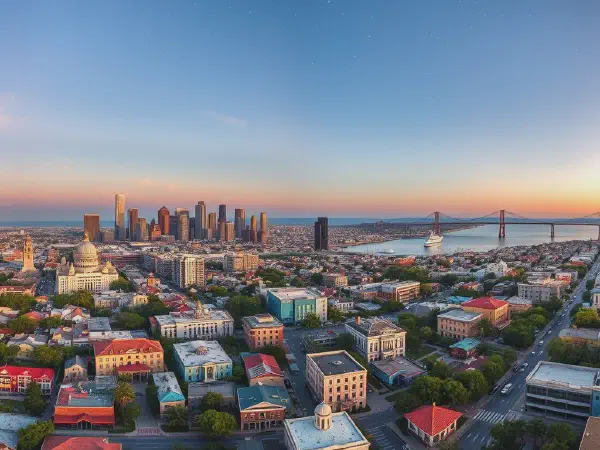Understanding The Political Landscape of San Diego

The Political Landscape of San Diego
The Political Landscape of San Diego is a dynamic and evolving tapestry of diverse interests, ideologies, and cultural influences. This coastal city, known for its beautiful beaches and vibrant lifestyle, also hosts a complex political environment shaped by local, state, and national factors. The interplay between progressive and conservative ideas plays a significant role in shaping the policies and governance of San Diego, making it a microcosm of broader trends seen across the United States.
In recent years, The Political Landscape of San Diego has been characterized by heightened civic engagement and voter mobilization, particularly among younger and more diverse populations. With demographic shifts and significant changes in political affiliations, the region has garnered attention as a pivotal area during elections. From local council races to congressional seats, the outcomes in San Diego significantly influence the political climate of California and beyond.
The Political Landscape of San Diego has also been marked by contentious debates over crucial policies such as housing affordability, environmental protection, and public safety. As the city grapples with rapid growth and rising living costs, these discussions have become increasingly paramount. The interplay between economic interests, social justice, and community safety continues to challenge local leaders and define the political narrative.
Local political dynamics have evolved, with various factions vying for influence within the community. The emergence of grassroots movements, advocacy groups, and coalitions has added complexity to The Political Landscape of San Diego, broadening the spectrum of voices and perspectives that shape governance. These developments reflect a broader trend of increased political activism, particularly among marginalized groups seeking representation and equity.
As San Diego approaches future elections, understanding The Political Landscape of San Diego involves examining not only current events and policies but also the historical context that informs today's dynamics. The interplay of local issues, state-wide initiatives, and national politics sets the stage for a rich and ongoing dialogue about democracy and representation in this vibrant Southern California city.
Current Political Climate in San Diego
The current political climate in San Diego has been significantly influenced by demographic changes, with a noticeable shift in voter preferences and engagement. The recent elections have shown increasing turnout among younger voters and a more diverse electorate, reflecting the city’s evolving demographics. In the 2020 presidential election, for instance, San Diego County saw a record high voter turnout which underscores the growing political awareness among its residents.
Demographic changes have also led to shifts in political alliances and influence. As the Latino population in San Diego continues to grow, issues pertinent to this community, such as immigration and social equity, have gained prominence in local political discussions. This demographic evolution has contributed to a broader coalition of progressive voters who prioritize inclusive policies.
Understanding the complexities of San Diego Politics is essential for grasping the city’s evolving policy landscape.
Key political parties, namely the Democratic and Republican parties, continue to play major roles in San Diego's politics, with the former gaining more ground in recent elections. However, as third parties and independent candidates emerge, their influence is reshaping the way policy discussions are approached and highlighting the need for broader representation in local governance.
Major Policies Affecting San Diego
Housing policy and affordability remain at the forefront of political discourse in San Diego. The city faces a housing crisis exacerbated by rising costs and limited inventory, leading to calls for more affordable housing initiatives. Local policymakers are grappling with balancing development and environmental impacts while trying to meet the needs of the growing population.
Environmental regulations are also a key focus, particularly due to San Diego’s vulnerability to climate change. Policies aimed at reducing carbon emissions, promoting renewable energy, and protecting coastline ecosystems are central to the political agenda. Activist groups push for stronger legislation to ensure sustainable practices that align with the city's natural beauty and ecological diversity.
Public safety initiatives have become increasingly important post-pandemic, with discussions surrounding policing reform and community safety strategies taking center stage. Local leaders are tasked with addressing the concerns about crime while ensuring a fair and equitable approach to law enforcement that builds trust between the police and the communities they serve.
Influential Political Figures
Several influential political figures have emerged in San Diego's landscape, each contributing to the region's political dynamics in unique ways. These include elected officials, such as mayors and city council members, who advocate for specific policies and community needs, as well as state legislators who play critical roles in state-wide governance.
Local advocacy groups have become increasingly significant, pushing for progressive reforms and representing marginalized voices within the community. Their roles in mobilizing voters, influencing policies, and holding elected officials accountable have made them essential players in shaping the political narrative in San Diego.
The impact of elected officials on policy-making is profound in San Diego. Leaders who champion sustainable development, social equity, and public health initiatives resonate with constituents, often paving the way for legislation that reflects the evolving needs and values of the community.
San Diego's Voter Demographics
Analysis of voter turnout trends reveals fluctuations that highlight San Diego's political engagement over time. Notably, the younger demographic has shown increasing participation rates in elections, indicating a growing interest in political processes and decision-making, which may reshape the political landscape in the near future.
Education levels also play a vital role in influencing voting behavior in San Diego. Higher educational attainment often correlates with progressive political views, leading to increased participation among well-informed voters who prioritize issues such as climate change, social justice, and equitable education.
Political engagement varies across different communities in San Diego, with some neighborhoods exhibiting robust activism and turnout while others lag behind. Understanding these disparities is essential for identifying barriers to participation and fostering inclusivity in the political process.
Future Political Trends in San Diego
Predictions for upcoming elections in San Diego suggest a continued trend toward progressive policies, driven by an engaged electorate that prioritizes transparency, equity, and climate action. Campaigns focusing on local issues like housing, public health, and social justice are expected to resonate strongly with voters in future elections.
Emerging issues on the political agenda include the impact of technology on daily lives, especially regarding economic opportunity and social connectivity. As the digital divide becomes more evident, discussions about equitable access to technology and information are likely to gain traction in the political discourse.
The influence of technology on voter mobilization cannot be understated, as social media campaigns and data-driven outreach efforts are becoming increasingly critical for political candidates seeking to engage with constituents. A focus on harnessing technology to promote civic engagement is likely to shape future political strategies in San Diego.
